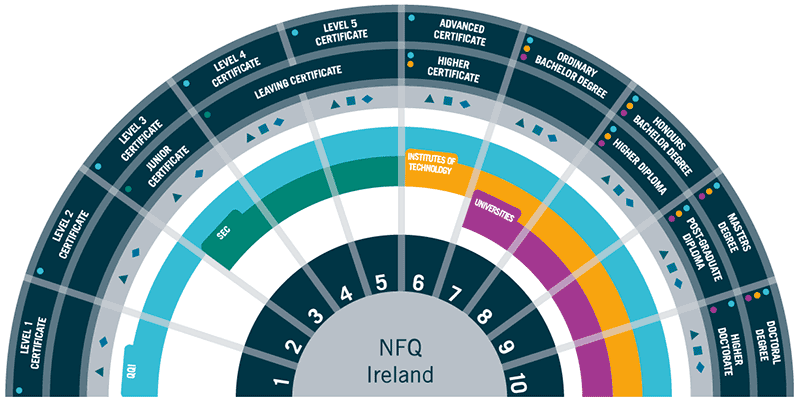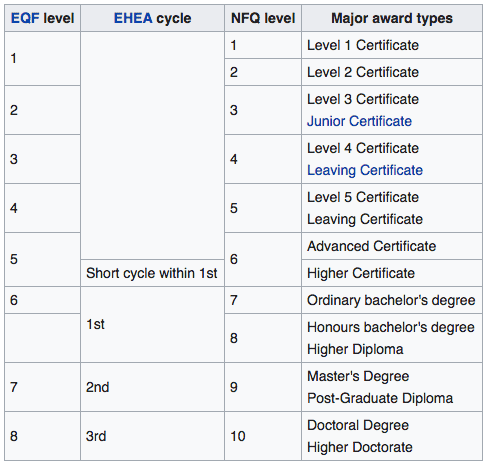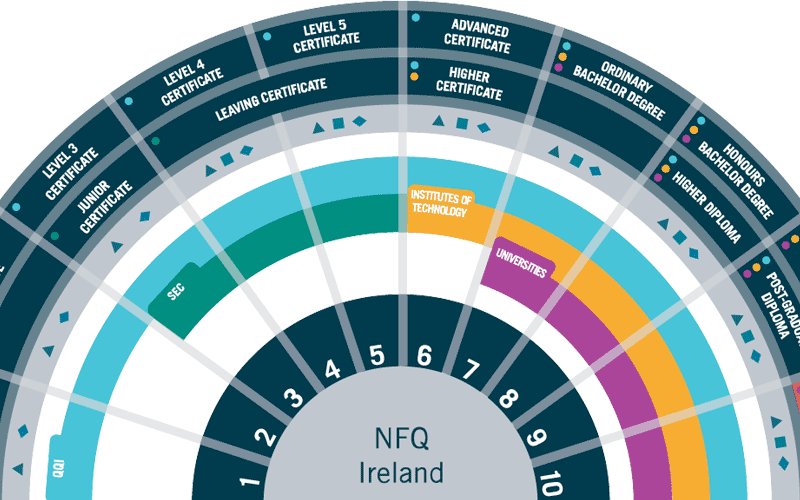In 2003 significant changes were made to the Irish education system with the introduction of the National Framework of Qualifications. Designed to encompass all education and training awards in Ireland, this new framework provides recognition for learning achievements at any level. It was brought into being to help Ireland move toward a ‘lifelong learning society’ where people can access learning at any stage of their lives. And in order to do that, our education system needed to be changed to ensure more flexibility.
What is the National Framework of Qualifications?
The National Framework of Qualifications is a system of 10 levels covering all types of learning – from the very basic to the most advanced. Because it is based on standards of knowledge, skills and competence – it incorporates awards made for all kinds of learning. School, Further Education and Training, and Higher Education are all included.

Quality and Qualifications Ireland (QQI) has responsibility to develop, promote and maintain the Irish NFQ. QQI also facilitates the recognition of foreign qualifications.
Qualifications Frameworks in Europe and beyond
As well as national frameworks, which help reform the qualifications system in a particular country, there are also European and regional frameworks such as the European Qualifications Framework (EQF) and the Qualifications Framework for the European Higher Education Area (QF-EHEA). These overarching systems link different countries’ qualifications systems together and act as translation devices to make qualifications easier to understand across different countries in Europe and beyond. Their main aim is to help people moving from one country to another to work, or to continue their education or training.




